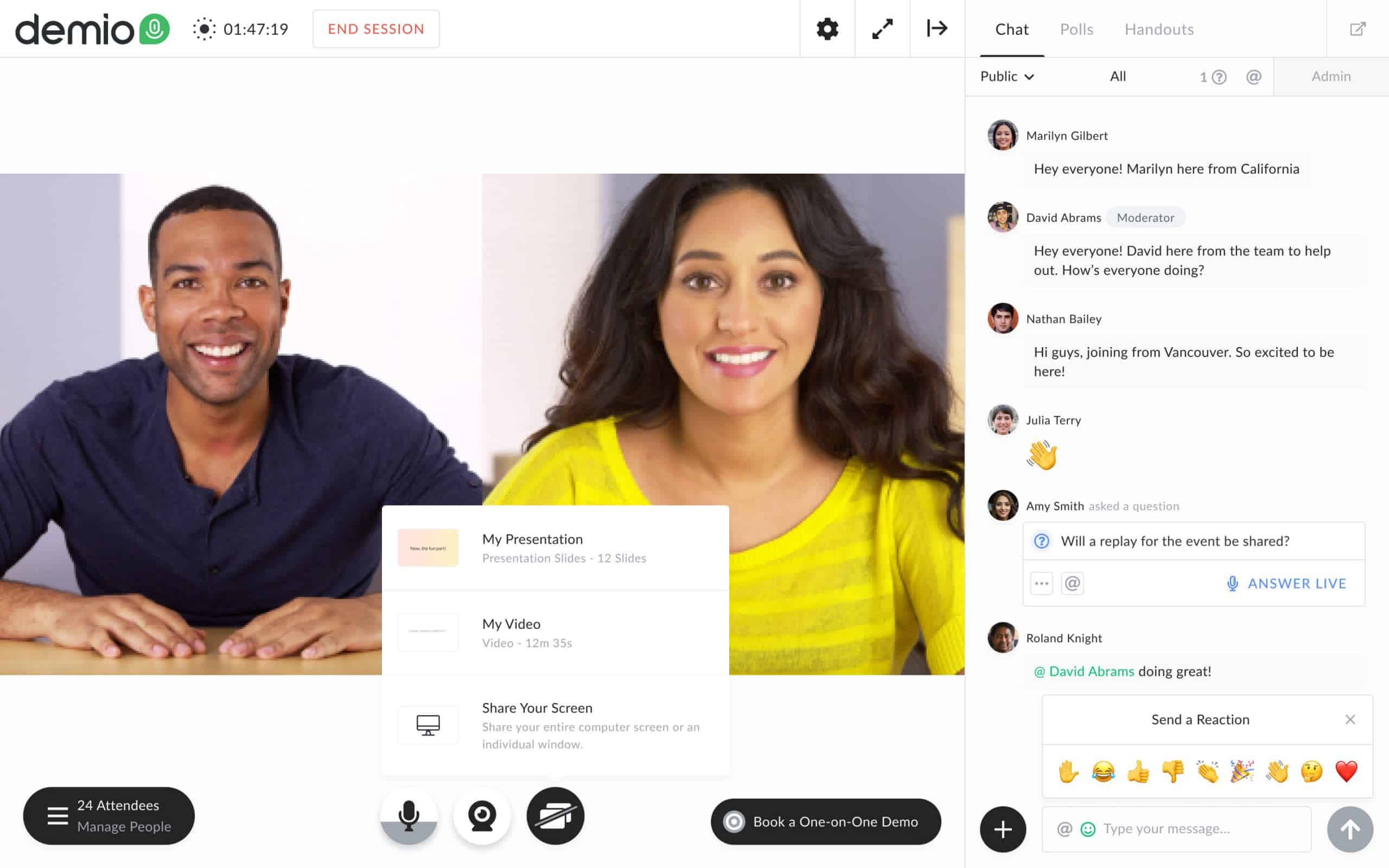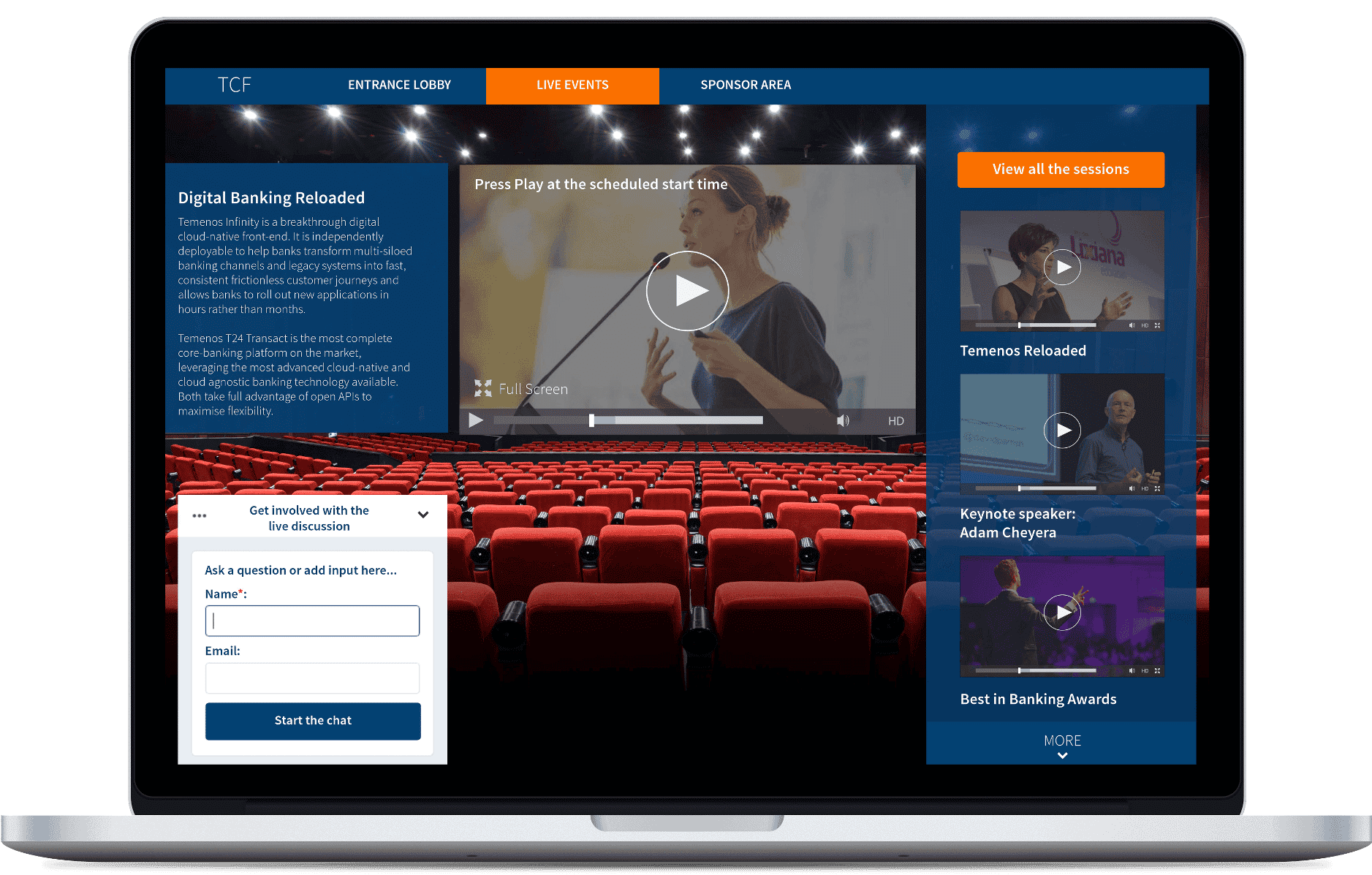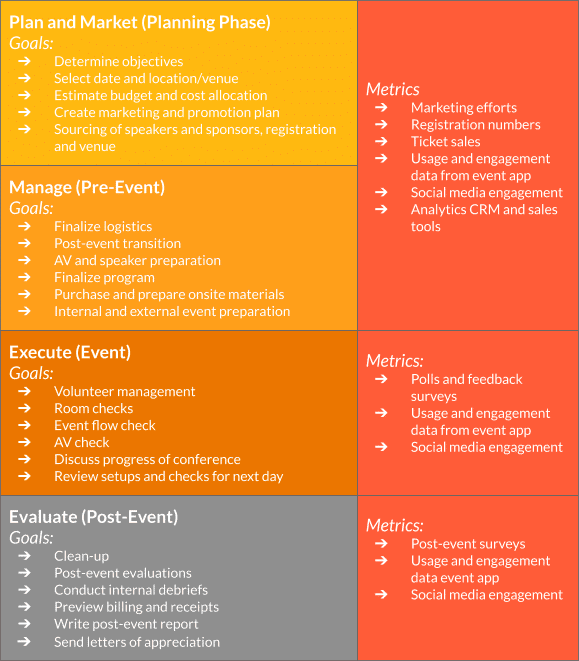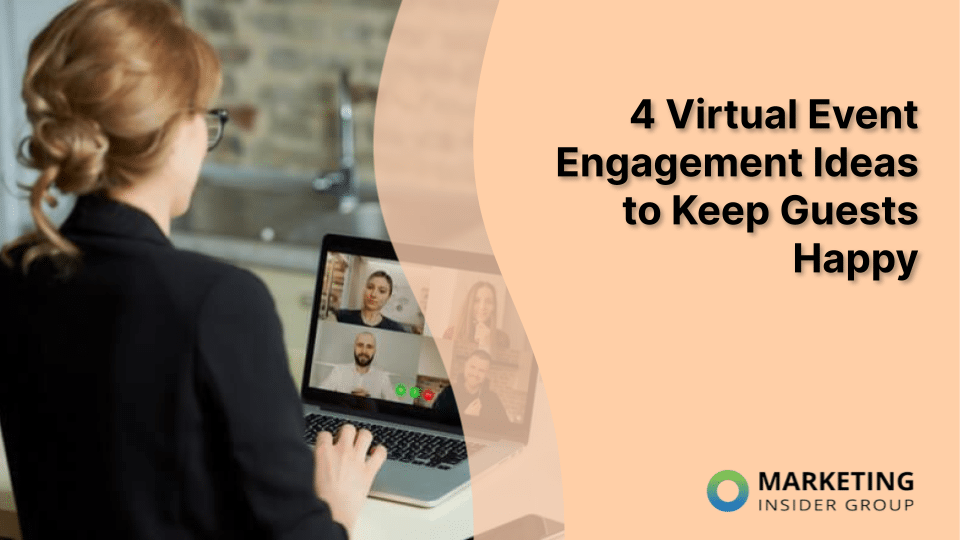
Virtual Events & Webinars: What Are The Key Differences?
When the COVID-19 pandemic struck and in-person events were canceled, virtual events and webinars came to the rescue.
While online events were held before the pandemic, the current situation has made them more popular. This trend will continue even beyond the pandemic because the benefits of hosting events online have now become more obvious than ever.
When contemplating hosting an online event, the question might come up as to whether to organize the event as a webinar or as a full-fledged virtual event.
It’s also possible that some might not even understand if there are differences between the two or if one has value over the other.
To help clarify this and guide your decision, we have provided a detailed analysis of the key differences, so you can decide which one works best for your plans. But before going into the differences, let’s build a foundation with basic definitions of both types of event:
What is a Virtual Event?
A virtual event is a multi-dimensional event in a virtual space that allows people to learn and interact together in ways similar to the experience of an in-person event.
What is a Webinar?
A webinar is an online seminar that allows one or more speakers to present over a web-based interface to a listening audience.
To understand and appreciate the key differences between virtual events and webinars, we’ll consider the following value delivery areas where these differences are obvious:
- Networking and Community Building
- Attendee Event Experience
- Platform Use and Access
- Lead Generation
- Data Insights & Metrics
- Event Platform and Data Security
Continue reading to learn more.
Networking and Community Building
Both webinars and virtual events can be used to host educational sessions, interviews, product demos, etc. However, networking and community-building are very limited in a webinar.
During a webinar, the speakers make presentations and attendees are engaged with Q&A and polling.

But a virtual event is usually designed with networking in mind, to give attendees the opportunity to interact as much as they can. Therefore, virtual event platforms are built with multipurpose networking tools such as live chats, 1:1 video calls, private meetups, etc.
Attendees have access to view the profiles of other attendees, event facilitators, speakers, and sponsors. This enables them to connect at different levels.

Further, fun activities like gaming and interactive polling are built into virtual events to create excitement, boost audience engagement, and foster community.
Attendee Event Experience
Another area in which virtual events and webinars differ is the experience attendees can have at each one. Webinars offer a general event experience for every attendee. However, virtual events offer unique experiences. In addition, attendees have limited choices during a webinar whereas attendees have greater flexibility at a virtual event.
Planning a virtual event should take the preferences of attendees into consideration. This is why virtual events are often multi-session and multi-track. But webinar planning usually focuses on addressing one general area of interest.
The unique experience attendees can have at virtual events is further explained below to show the differences:
Multi-Session and Multi-Track Events
While webinars can be a single or multi-session event, virtual events have more flexibility and they can be single, multi-session, and/or multi-track. A virtual event gathers the best content from a host of experts to afford a wide range of options for attendees to choose from.
On-Demand Content
Apart from educational sessions, virtual events can also offer attendees the opportunity to access pre-recorded content based on their preferences. In webinars, the same content is pushed to everyone.
Unique Experience with Sponsors
As sponsors seek to find new clients at any event, attendees also look forward to solutions that can benefit their business interests. Virtual events provide the opportunity for attendees to meet sponsors and discover opportunities that suit their interests.
Platform Use and Access
A webinar can be used to deliver seminars, interviews, product demos, etc., but all of this cannot happen simultaneously. A virtual event can feature keynotes, educational sessions, exhibitions and tradeshows, product launches, networking, teaming, gaming, and other activities without interference.
Webinar events usually take place during a fixed time when attendees can either join or miss the event. During virtual events, attendees can engage with event content and interact on the platform long after the event is over.
This can go on until the platform is shut. Some virtual event platforms are “evergreen,” meaning that there is no closing date and organizers can continue to push content to attendees on the platform. While virtual booths and live support may no longer be available after the event closing date, all the content will still be intact.
Lead Generation
A webinar can offer some lead generation opportunities in the sense that the organizers can use it to pitch their solutions to attendees. However, that can only have limited impact. Virtual events offer a more precise and data-based approach: in a virtual event, attendees have the opportunity to meet sponsors and exhibitors of their choice on the virtual platform. Sponsors can also schedule meetings with selected attendees based on shared business interests.
This is made possible by several features that are designed to maximize brand awareness and provide tremendous opportunities for lead generation. Some of these features include virtual booths or exhibit halls, interactive polling, gamification, push messages via mobile event app, and even live prospecting tools.
Data Insights & Metrics
The ability to collect, access, and retrieve data from an event is key to the event’s success. Webinars can only capture limited data. On the other hand, virtual events offer unlimited opportunities to unlock data insights. Below are some areas of data capture in a virtual event that might not be possible with a webinar:

Content Metrics
This shows how attendees interact with your event content and the topics that resonate with them. It also shows which speakers were able to engage the attendees the most. Metrics like speaker profile views, session registration, and content downloads can provide the needed insight to plan content and select speakers for future events.
User Data
A virtual event provides the opportunity to collect and access more user data than is possible in a webinar. Because of the networking environment provided, users are willing to provide additional data about their interests. Such data becomes available for event organizers and sponsors to retrieve and use in curating more event content and reaching out to prospects.
Event Platform and Data Security
Virtual events also differ from webinars in the security features of the event platform. Webinar tools are susceptible to attacks, and therefore they may not be suitable for large business events.
Such events require a platform with advanced security features such as the ones available on virtual event platforms. This ensures that content and user data are safe and access remains restricted.
The purpose, size, and duration of your event will determine whether to organize a webinar or to host a virtual event. If you want to address a general topic, you can host a webinar. But when you are thinking of creating an event with a bigger impact and unique attendee experience then you should consider hosting a virtual event.
———-

Jordan Schwartz is president and co-founder of Pathable, an event app and website platform for conferences and tradeshows. He left academic psychology for the lure of software building, and spent 10 years at Microsoft leading the development of consumer-facing software. Frustrated with the conferences he attended there, he left Microsoft in 2007 with the goal of delivering more value and better networking opportunities through a next-generation conference app. Jordan moonlights as a digital nomad, returning often to his hometown of Seattle to tend his bee hives.






